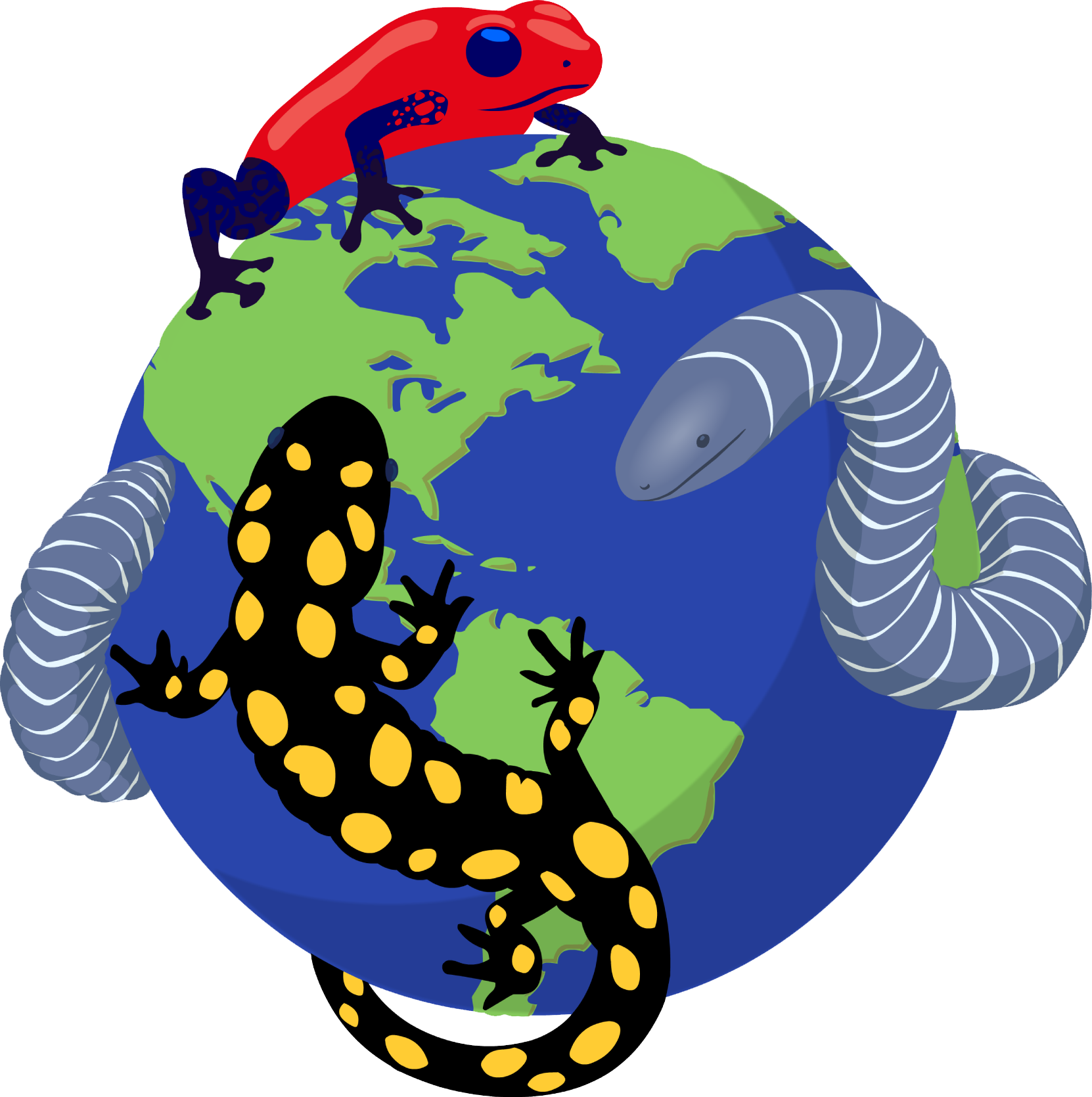|
Description
This species is a relatively large treefrog with adult males smaller (42-60mm) than females (59-82mm). These frogs have large heads. They have well developed webbing on their hands but only moderate webbing on their toes. Digits terminate in truncated discs. Dorsally, these frogs are bright green with or without black or brown spots with black edges. Ventrally, they are white or cream with pale brown spots. The iris is orange to brownish red (Wilkinson 2003). Distribution and Habitat
Country distribution from AmphibiaWeb's database: Japan
The Forest Green Treefrog can be found in Honshu, Japan, and the small island of Sado off northeastern Honshu. They can be found from sea level to mountainous regions at altitudes over 2,000 m. Outside of the breeding season, they can be found in trees and leaf litter. During breeding season, they can be found in ponds and rice fields. During winter, they hibernate under moss or shallow soil (Wilkinson 2003).Life History, Abundance, Activity, and Special Behaviors
The diet consists of insects. The male's mating call consist of a series of two to six clicking sounds. After mating the female deposits eggs in a foam nest on vegetation near standing water. The female excretes an albumin-based fluid from her cloaca, which she beats with her hind legs to form the foam nest. She then lays 300-800 eggs into the nest, which the male subsequently fertilizes. The foam nest hardens, protecting the eggs from desiccation and predation. After the eggs hatch, the foam softens, and the hatched larvae fall into the standing water to complete development (Wilkinson 2003). Trends and Threats
This species is protected and rare in its range. Relation to Humans
The ponds where the frogs gather to breed have become tourist attractions (Wilkinson 2003).
References
Wilkinson, J. (2003). ''Kinugasa flying frog, Rhacophorus arboreus.'' Grzimek's Animal Life Encyclopedia, Volume 6, Amphibians. 2nd edition. M. Hutchins, W. E. Duellman, and N. Schlager, eds., Gale Group, Farmington Hills, Michigan.
Originally submitted by: Peera Chantasirivisal (first posted 2005-10-13)
Edited by: Kellie Whittaker, Michelle S. Koo (2022-08-18)Species Account Citation: AmphibiaWeb 2022 Zhangixalus arboreus: Kinugasa Flying Frog <https://amphibiaweb.org/species/4496> University of California, Berkeley, CA, USA. Accessed May 1, 2025.
Feedback or comments about this page.
Citation: AmphibiaWeb. 2025. <https://amphibiaweb.org> University of California, Berkeley, CA, USA. Accessed 1 May 2025.
AmphibiaWeb's policy on data use.
|





 Map of Life
Map of Life